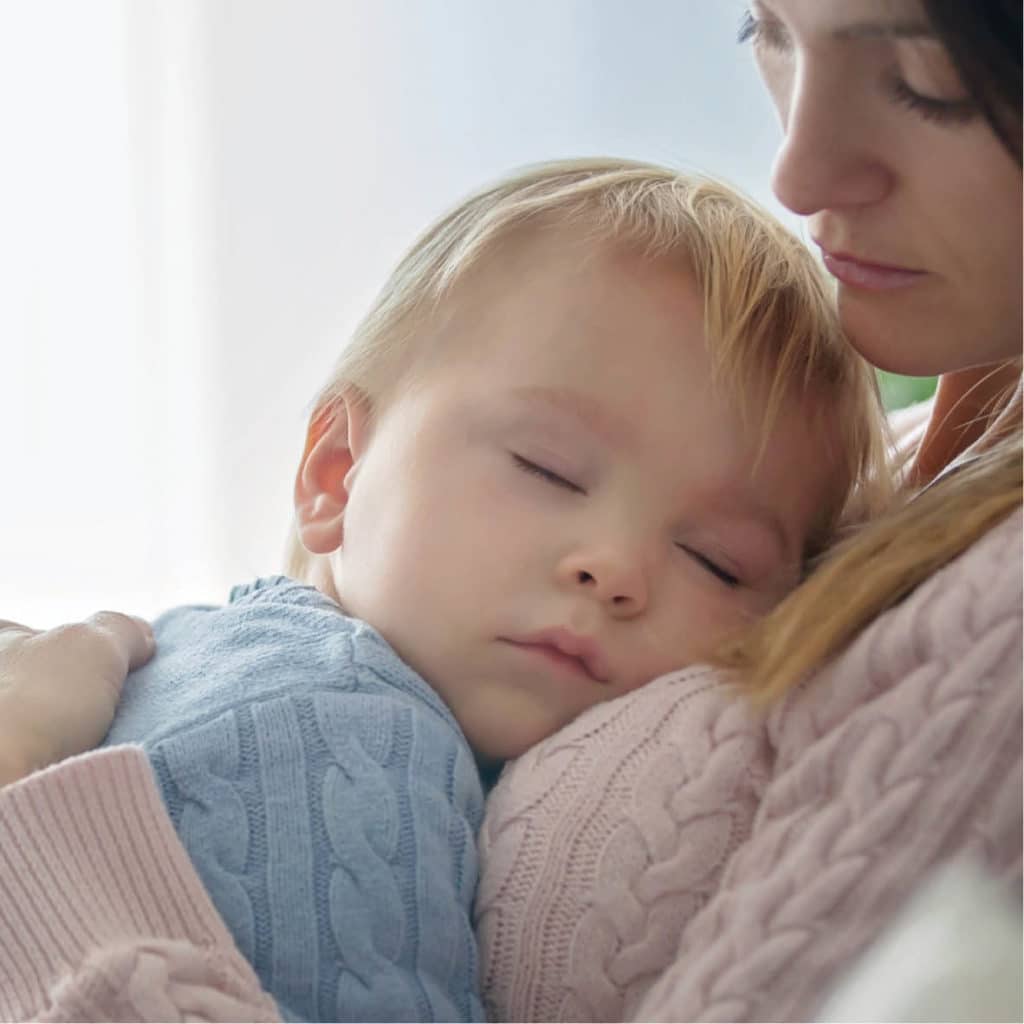Should you get your child vaccinated?
As winter approaches so too does the flu season. Flu, which is caused by the influenza virus, can be particularly dangerous to certain groups of people including pregnant women and young children.
On this week’s blog we’re talking about what flu is and how to recognise the symptoms, who is entitled to the vaccine, why it’s important to have it and how to go about arranging it.

What is flu?
Influenza, commonly known as the flu, is a contagious respiratory illness caused by influenza viruses.
These viruses can infect the nose, throat, and sometimes the lungs, leading to a range of symptoms.
What are the symptoms and how does it differ from a cold?
The flu is different from the common cold, and it tends to come on more suddenly and be more severe. You can usually carry on with your daily life with a cold but with flu it’s likely you won’t feel able to be up and about.
Fever:
A sudden onset of a high fever is a common symptom of the flu.
Cough:
A dry or productive cough is common with the flu. The cough can be persistent and may last for several weeks.
Sore throat:
Many individuals with the flu experience a sore throat, which can contribute to discomfort and difficulty swallowing.
Body aches and fatigue:
Muscle aches, joint pain, and overall fatigue are hallmark symptoms of the flu. These symptoms can be severe and make daily activities challenging.
Headache:
Intense headaches are common with the flu and can contribute to an overall feeling of malaise.
Chills and Sweats:
Cold-like symptoms, such as chills and sweating.
Nasal congestion:
While not as prominent as with the common cold, nasal congestion can occur with the flu, leading to a runny or stuffy nose.
Gastrointestinal symptoms:
Some people, particularly children, may experience gastrointestinal symptoms such as nausea, vomiting, and diarrhoea.
Who is most at risk of flu:
Young children
Children, especially those under the age of 5, are more susceptible to the flu due to their developing immune systems. Infants and toddlers may experience more severe symptoms, and complications such as pneumonia can arise. They can also be efficient carriers of the virus, spreading it easily in nurseries, schools and playgroups.
Elderly individuals
Adults aged 65 and older are at an increased risk of severe flu-related complications. This is often because the immune system weakens with age, making it more difficult for the body to fight off infections.
Pregnant women
Pregnant women experience changes in their immune system, heart, and lungs during pregnancy, which can make them more prone to severe illness from the flu. Additionally, the flu can lead to complications during pregnancy, such as preterm labour.
People with underlying health conditions
People with certain medical conditions, such as asthma, diabetes, heart disease, or weakened immune systems, are at higher risk of complications from the flu. The virus can exacerbate existing health issues and lead to more severe illness.
Who is entitled to the vaccine?
In the UK, the NHS provides free flu vaccinations to certain groups of people as part of a targeted effort to protect those who are most at risk of complications from flu.
Vaccination is free on the NHS and is offered to children as a nasal spray – so no needles!
Children
The nasal spray flu vaccine is free on the NHS for:
- children aged 2 or 3 years on 31 August 2023 (born between 1 September 2019 and 31 August 2021)
- all primary school children (Reception to Year 6)
- some secondary school aged children (Year 7 to Year 11)
- children aged 2 to 17 years with certain long-term health conditions
If your child is aged between 6 months and 2 years and has a long-term health condition that makes them at higher risk from flu, they’ll be offered a flu vaccine injection instead of the nasal spray.
This is because the nasal spray is not licensed for children under 2 years old
Adults
The flu vaccine is given free on the NHS to adults who:
- are 65 and over (including those who will be 65 by 31 March 2024)
- have certain health conditions
- are pregnant
- are in long-stay residential care
- receive a carer’s allowance, or are the main carer for an older or disabled person who may be at risk if you get sick
- live with someone who is more likely to get a severe infection due to a weakened immune system, such as someone living with HIV, someone who has had a transplant, or is having certain treatments for cancer, lupus or rheumatoid arthritis
How to Arrange a Vaccine
GP Surgery
Contact your GP to arrange a vaccine for yourself or if you have a child over 2 years old and they’re not yet in school.
School Vaccination Programmes
Most schools participate in vaccination programmes. They will be in touch to gain consent to give your child the vaccine. If you’re not sure if your school has a vaccination programme contact them to find out.
Local Pharmacies
Some local pharmacies also offer flu vaccination services. Check with your nearby pharmacy to see if they provide vaccinations for children and inquire about the availability of appointments.
For more information about the flu vaccine visit the NHS page here.
